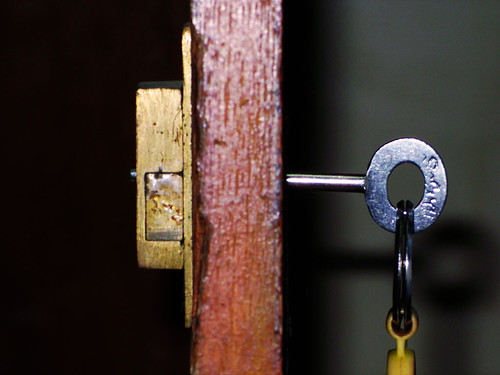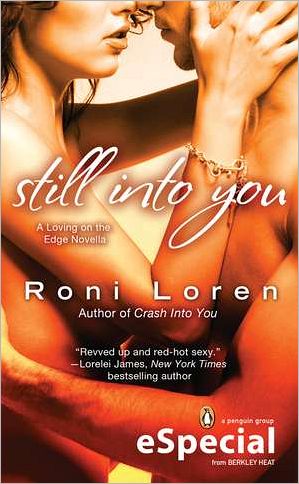
Photo by Rennett Stowe
I spent the weekend in Vegas for my birthday and had a fabulous time. It was a short trip but a much needed mental break in the middle of my deadline hell. : ) But this also means I'm a back an older post. This problem I talk about in this post is ongoing for me as I find myself less and less forgiving of an opening that doesn't hook me.
This year I'm doing the 50/50 Challenge (50 books and 50 movies in a year), and I've been doing decent on my pace--though I probably won't hit 50. But I definitely have put down at least ten books that I started and never went back to. So I'm updating this older post with this year's experience.
***
So up until about a year ago, I had this problem when I started reading a book. Once I peeled back the cover of one, I was compelled to finish it. No matter if I was fully enjoying the book or not. It felt like starting a book was like signing some contract. I bought this book. I've chosen to read it. And now I must read it all. I was the Chronic Finisher.
But then a lot changed in my life. I got a book deal and started writing on deadline. My then angelic two year old turned into an intense three year old. And my reading time shrunk to this minuscule sliver of time. So I found myself putting down books that didn't capture my interest. And then I wouldn't get any reading done because I felt like if I was going to read, I needed to finish whatever book I had started. But I wasn't into that book so didn't pick it up at all.
Well, finally, I came to the conclusion that I had to put the Chronic Finisher in rehab. I was missing out on good books by forcing myself to read ones I didn't love. My reading time is too short and my TBR pile too big to be doing that. So lately, I've been giving myself permission to give up on a book if it hasn't grabbed me by page 50 or so. (I know many of you are less forgiving than that, but three chapters or 50 pages feels about right for me. I give it a shot in case it's a slow starter.)
And each time I put down a book in the DNF (did not finish) pile, the writer in me wants to evaluate WHY I didn't feel compelled to finish it. What was bad enough to defeat the chronic finisher? Here's what I've discovered.
What Makes Even the Chronic Finisher Put Down a Book
1. Didn't connect with the characters
If I can't relate to the hero or heroine at all or if I don't like them, I find it next to impossible to get into the book. I must be emotionally connected by chapter 3 at the very latest. This is probably the most common reason I put a book down.
2. There was no chemistry or not enough build-up between the hero and heroine in a romance.
Obviously, I write sexy romance and enjoy reading it. But nothing will bore me quicker than throwing two people together when there hasn't been any tension or chemistry set up beforehand. This doesn't mean you can't have the characters get together quickly, but the author better have done a fabulous job building up that tension. (Liberating Lacey by Anne Calhoun comes to mind for a great example of how to do this right. The characters have a love scene very quickly, but the setup and chemistry are FABulous so it feels like the right time.)
3. This feels familiar...
Tired plots and clichés. Last year, this has happened most in the YA paranormal genre for me. If a book is going to have a girl meeting dangerous, mysterious new guy--there better be a helluva twist to make it different from all the other stories out there like that.
4. The BIG secret is the only sense of tension in the book.
I am fine with a secret in a plot. That can be great. (And by secret, I don't mean twist we don't see coming. That's something different. I mean we, the readers, know there is a secret.) But what I will not put up with for long is a book that drags out revealing what the BIG secret is to the reader for no apparent reason but to pull you along. This is when characters keep almost revealing what the big, bad thing is, but then someone walks into the room and interrupts them. Gah! I'm much more a fan of where the reader may know the character's secret early on, but the hero or heroine is keeping it from another character for good reason.
5. Bad writing
I know I'm picky. I'm a writer so I'm going to see things now that I wouldn't have probably picked up when I was only a reader. For instance, an opening scene where the character is looking in a mirror and describing herself is cliche. Writer me groans. A reader may not care. Or if there is lots of telling and no showing, I'll get turned off by it. A few of these things here and there won't necessarily make me put down a book, but a consistent appearance of things like that will make me close the book. (And if it's exclamation points on every page, I'll close it regardless since it's a pet peeve of mine and usually indicates beginner writing.) With all the publishing options out there, I've grown a bit more careful and am reading sample pages. Because some books are edited and some you can tell are by a first time writer who let their Aunt Ruth "edit".
6. Nothing to get passionate about
This one is new for me and a little harder to define. I've started to read books that were...fine. The writing was good, the characters were interesting enough, there wasn't anything I could point to that was bad. BUT at the same time, when I put these books down, I didn't find myself thinking about the book or that desperate to get back to it. I didn't feel passionate about anything in the book. It's kind of a "I could take it or leave it" feeling. Like, if I had nothing better to do, I'd read it. In the past, these would've been books I'd make myself finish. Now I'm at the point that I just move on. The TBR pile is too big to waste time on something I'm ambivalent about. (This is also the one that drives me most crazy as a writer because I want to know WHY I'm ambivalent so that I don't make those mistakes in my own writing.)
7. *Yawn* Boring....
This one is obvious I'm sure, but I need a book to hook and excite me. If I'm at page fifty and I don't give a crap what happens, then you've bored me. You should have me by chapter one. If the book goes on and on with description and setting up characters and not giving me any true action or conflict, I'm bored. Maybe that's a result of our fast-moving culture, but it is what it is. A book is entertainment, so entertain me. Dance, monkey, dance. :)
All right, so those are my top reasons for putting down a book. What are some of yours? How long do you give a book to hook you? Are you a chronic finisher?

